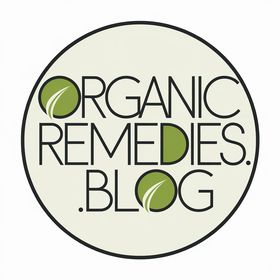Reset Your Hormones After 40 – Natural Methods That Work
You can reset your hormones after 40 with natural methods that truly work. Start by optimizing your diet with healthy fats, fiber-rich foods, and leafy greens. Regular exercise, including strength training and cardio, is essential for hormone regulation. Don’t underestimate the power of stress management and quality sleep, as they stabilize hormone levels. Additionally, consider natural supplements like maca root and omega-3s for extra support. Discover more about these strategies to enhance your well-being and vitality.
Understanding Hormonal Changes After 40
As you reach the age of 40, your body begins undergoing significant hormonal changes that can impact everything from your mood to your energy levels. Understanding these shifts is crucial for a natural hormone reset after 40. Imbalances in estrogen, progesterone, and testosterone can lead to symptoms like fatigue and irritability, making awareness and proactive management essential for maintaining your overall well-being. Incorporating healthy fats into your diet can significantly support hormone production and overall balance.
Nutritional Strategies for Hormonal Balance
To achieve hormonal balance after 40, focusing on your diet is key.
You’ll want to optimize healthy fats, like avocados and nuts, which support hormone production, while incorporating fiber-rich foods to keep your digestion and blood sugar in check.
Making these changes can significantly impact how you feel and function day-to-day. Including leafy greens in your meals can further enhance energy levels and support your endocrine system.
Optimize Healthy Fats
Incorporating healthy fats into your diet can be a game changer for hormonal balance, especially after 40.
Focus on sources like avocados, nuts, seeds, and olive oil, which support hormone production and reduce inflammation. These fats provide essential fatty acids your body needs.
Balancing your intake helps regulate insulin and estrogen levels, ultimately promoting overall wellness and vitality as you age.
Incorporate Fiber-Rich Foods
Balancing healthy fats in your diet sets the stage for another important aspect of hormonal health: fiber.
Incorporating fiber-rich foods like fruits, vegetables, whole grains, and legumes helps regulate blood sugar and supports digestion.
Additionally, fiber aids in estrogen metabolism, reducing hormonal imbalances.
Aim for at least 25 grams daily to nourish your body and promote overall hormonal harmony.
The Role of Exercise in Hormone Regulation
Exercise plays a crucial role in regulating your hormones, particularly as you age.
Incorporating a mix of strength training, cardiovascular workouts, and flexibility exercises can significantly enhance hormonal balance.
To get the most benefits, aim for a consistent routine that includes at least 150 minutes of moderate activity each week.
Types of Beneficial Exercises
While you might not realize it, the right types of exercise can significantly impact your hormone regulation as you age. Incorporating strength training, cardiovascular workouts, and flexibility exercises into your routine can help balance hormones effectively. Here’s a quick breakdown of these beneficial exercises:
| Exercise Type | Benefits | Frequency |
|---|---|---|
| Strength Training | Boosts metabolism, builds muscle | 2-3 times a week |
| Cardio | Improves heart health, reduces stress | 3-5 times a week |
| Flexibility | Enhances mobility, reduces tension | 2-3 times a week |
Exercise Frequency Recommendations
The frequency at which you incorporate exercise into your weekly routine plays a key role in hormone regulation, especially after 40.
Aim for at least 150 minutes of moderate aerobic activity weekly, combined with strength training twice a week.
This balanced approach not only boosts metabolism but also enhances insulin sensitivity and overall vitality, helping you manage hormone levels effectively as you age.
Managing Stress to Support Hormonal Health
Stress can significantly impact your hormonal health, especially as you navigate the shifts that come with aging.
To manage stress effectively, try these techniques:
- Practice mindfulness or meditation for mental clarity.
- Engage in regular physical activity to release endorphins.
- Establish a supportive social network to foster connection.
Incorporating mindfulness techniques into your daily routine can further enhance your ability to cope with stress and promote hormonal balance.
The Importance of Sleep for Hormonal Stability
Sleep plays a crucial role in maintaining hormonal stability, especially after 40. Adequate sleep regulates hormones like cortisol, insulin, and melatonin, essential for your overall health. Here’s how sleep affects your hormones:
| Hormone | Effect of Sleep |
|---|---|
| Cortisol | Reduces stress response |
| Insulin | Improves blood sugar control |
| Melatonin | Regulates sleep-wake cycle |
| Growth Hormone | Supports muscle and repair |
Natural Supplements for Hormonal Support
As you navigate the changes in your body after 40, incorporating natural supplements can be a powerful way to support hormonal balance.
Consider these options:
-
Maca root: Known for its energy-boosting properties and hormonal support.
-
Ashwagandha: Aids in stress reduction and may help regulate cortisol levels.
-
Omega-3 fatty acids: Supports overall hormonal health and reduces inflammation.
Additionally, incorporating herbs like turmeric’s anti-inflammatory properties may further enhance your well-being.
Integrating these can make a significant difference in your well-being.





